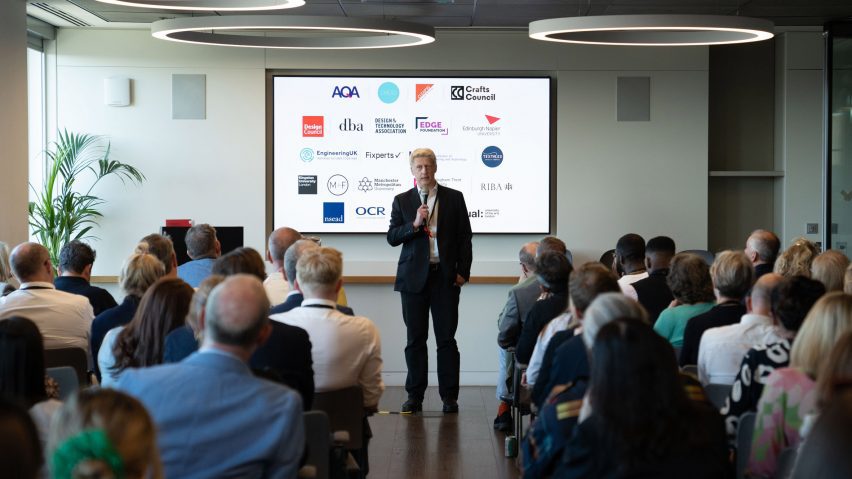
UK design education has "fundamental problem" says Jo Johnson
British politician Jo Johnson, brother to the former prime minister Boris Johnson, has criticised the current state of Britain's design and technology education.
Speaking at the launch of the Design Council's report A Blueprint for Renewal: Design and Technology Education, Johnson outlined his frustrations and called for changes to the country's education system.
Secondary school system is "totally constipated"
"We have a big problem," Johnson said. "And that problem is a totally constipated secondary school system at the moment, which has been bunged up by reforms that tried to take our curriculum back to the 1950s."
"This government has unfortunately stuck our secondary education system in a mindset that thinks the way we did things in the 1950s is the way we need to do things in [...] the 21st century."
"What is really frustrating me at the moment is that, although design is one of Britain's great strengths [...], I do feel that we're fundamentally shortchanging ourselves as a country in terms of exploiting the huge potential we have to do even better than we do already."
Citing reforms that were introduced in 2010 and further developed in 2017, Johnson continued, "we have a curriculum at the moment [...] that is completely outdated in terms of its excessive emphasis on a very narrow range of academic subjects."
He was referring to the English Baccalaureate (EBacc) subjects that GCSE students must take, which include English language and literature, mathematics, the sciences, geography or history, and a language.
"Calamitous decline" in non-academic subjects
According to Johnson, the result of this policy has seen "a calamitous decline" in the number of pupils taking non-Ebacc subjects such as design and technology, art, dance, drama, music, and sport.
"One of the biggest victims of all of this reform process over the last 14 years has been design and technology, where the number of GCSE entrants has cratered by almost 70 per cent over the last 10 years or so," he said. "This is a major problem."
He was referring to the 14 years since the Conservative party has been in power, of which his brother Boris Johnson was prime minister for three of those years, from 2019 to 2022.
In December 2023, the House of Lords' Education for 11-16 Year Olds Committee, chaired by Jo Johnson, published a "hard hitting" report titled Requires Improvement: urgent change for 11-16 education.
The report urged the government to relax the constraints of the EBacc and to enable schools to offer a much broader and more balanced curriculum than they are presently able to.
"The reality is that our schools are under enormous pressure: they have shortages of teachers and they are struggling against the countervailing pressures of league tables which are based on the performance of the EBacc subjects."
"Huge opportunity for a new government"
Johnson was speaking ahead of the UK's general election, as the Design Council also announced plans to upskill one million designers by 2030. He said, "We have a fundamental problem in our system. We really need the next government [...] to take a proper look at the EBacc and the damage it's doing to the pipeline of talent into our creative industries."
He went on to say that there have been many powerful commissions and bodies who have "made this fundamental point" over the last few years including the Times Education Commission and the Heads' Conference.
"Urgent change is necessary," he said, and he sees a "huge opportunity for a new government to take a look at how we do things and to make some important early changes."
Jo Johnson, formally Lord Johnson of Marylebone, was a Minister of State for Universities, Science, Research and Innovation from 2016 to 2018, and a Member of Parliament for Orpington from 2010 to 2019.
He currently sits in the House of Lords, is executive chairman of FutureLearn, the global digital learning platform, and chairman of Access Creative College, the independent provider of further education and training for the creative industries.
The photography is courtesy of the Design Council.